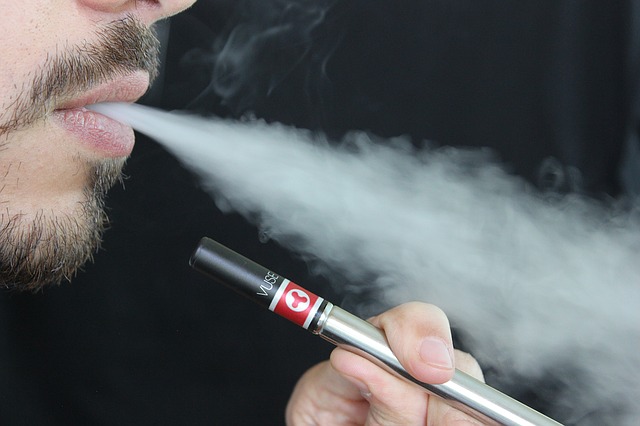The Ghana Non-Communicable Disease Alliance (GNCDA) is worried about what it sees as an upsurge of alcoholism and ‘excessive smoking’ in the country, especially among young Ghanaians, according to a story broadcast by the Ghana Broadcasting Corp.
Speaking at the official launch of the GNCDA in Accra, the group’s vice chairperson, Adams Ebenezer, said that exposing children to these harmful products was a violation of their human rights.
The GNCDA is a newly-formed network of Non-Governmental Organizations that was officially registered this year with the mission of becoming a leading organization contributing to reducing NCD-related deaths and disabilities, and improving the quality of lives of people living with NCDs.
It aims to support and complement the government.
Shisha tobacco had become a lifestyle product among many of the country’s young people, who were ignorant about the danger posed by the use of this product, Ebenezer said. Research had shown that a session of shisha smoking was the equivalent of smoking 100-150 cigarettes.
Ebenezer said the only known way of reducing health issues such as lung cancer, oral cancer, neck cancer, heart disease, hypertension, obesity and extreme poverty was to exercise absolute control over tobacco use, exposure to tobacco smoke and alcohol.
Category: People

Ghanaians battling NCDs

Nepal to enforce ban
Kathmandu’s Metropolitan authorities are implementing an 18-month ‘Healthy City Program’ aimed at cracking down on the use of tobacco in public places, according to a story in The Kathmandu Post.
Unveiling the plan on Friday, Mayor Bidhya Sundhar Shakya said there would be no compromises in implementing the program.
“In a bid to control its [tobacco’s] massive use, the government has made it expensive,” said Shakya. “The government makes a good income through it. But public are paying higher amount for their treatment.”
He said the campaign would make clear that smoking and consuming tobacco in public places was punishable.
The existing Tobacco Product (Control and Regulatory) Act-2011 bans smoking in public places such as government and company offices, parks, libraries, airports, public vehicles, childcare centers, cinema halls, hotels, restaurants, department stores, young people’s hostels, industrial and religious sites.
However, the Act has been allowed to become generally ineffective.
Although in February 2016 the city authorities started a crackdown that resulted in the booking of nearly 1,000 people, the drive quickly ran out of puff.
The city authorities say, however, that this time the program will be more effective.
The city’s Public Health Department chief, Hari Kumar Shrestha, said that to control the use of tobacco, a committee of 15-16 people would be formed in all wards to undertake a door-to-door awareness program.
The World Health Organization’s Tobacco Free Initiative has provided Rs10 million to conduct the Healthy City Program in Kathmandu.
If it enforces the ban, Kathmandu will become the 50th city to implement the program.
E-cigs as treatment aid
Researchers in New Zealand say that more thought should be given to the use of electronic cigarettes in hospitals because the use of these products can lessen the stress of patients’ treatment, according to a stuff.co.nz story.
Dr. Penelope Truman of Massey University’s School of Health Sciences said its research had found that e-cigarettes could aid patients battling alcohol addiction and patients admitted to psychiatric units.
More than 40 patients at Kenepuru Hospital in Porirua were studied in two cohorts between 2013 and 2016.
Truman said there were similar reductions in smoking when patients were offered e-cigarettes or conventional nicotine-replacement therapies, such as patches or gum.
The trial had shown there were no “significant” problems with patients using e-cigarettes in a hospital setting, and that these products could be beneficial.
On the other hand, going outside for a smoke could create a lot of problems for patients and the staff trying to care for them.
Alcoholics who were also smokers were offered the option of using an e-cigarette as well as, or instead of, conventional nicotine replacement therapy to stop smoking while in hospital.
The e-cigarettes proved to be more popular than standard therapy, and were at least as effective, Truman said.
“This is only a little trial, but I think it does raise some questions,” she said. “A lot of people are going to have to reconsider how they feel about people vaping around them, because it’s going to become increasingly popular.”
The full story is at: https://www.stuff.co.nz/national/health/101689960/ecigarettes-could-have-a-positive-impact-in-hospital-environments-research-finds.
Another glowing report
A clinical study conducted by scientists at British American Tobacco has revealed that when smokers switch completely from cigarettes to the tobacco-heating product (THP) glo, their exposure to certain cigarette smoke toxicants is significantly reduced, in some cases to levels comparable to those seen in smokers who quit smoking completely.
The company points out in a footnote that the results of the study do not necessarily mean that glo is less harmful than are other tobacco products.
It says, however, that the results add to ‘evidence suggesting that [using] glo may have the potential to be substantially reduced risk compared to smoking conventional cigarettes’.
A BAT press note said that glo was designed to heat rather than burn tobacco, which meant that it did not produce smoke, and that certain toxicants associated with tobacco combustion were substantially reduced. Previous studies had revealed that toxicant levels in the vapor from glo were about 90-95 percent lower than they were in cigarette smoke.
“Products like glo are very new and consumers and regulators alike understandably want as much information as possible about them,” said Dr. James Murphy, head of reduced risk substantiation at BAT. “Understanding how vapor from glo compares to cigarette smoke is, therefore, a core component of our scientific research. Clinical studies, which are studies involving real people, are an extremely important component of that.”
The press note said that because glo vapor had lower levels of toxicants than did cigarette smoke, it should in principle expose consumers to much lower levels of toxicants.
The results of this study, which were due to be presented on Saturday at the annual conference of the Society for Nicotine and Tobacco Research in Baltimore, Maryland, US, indicated that this was the case.
Smoking deadly but lawful
The Netherlands’ Public Prosecutor has rejected calls for an investigation into allegations of murder or manslaughter against four multinational tobacco companies, according to a number of media reports.
An Associated Press story described the decision as a blow to what Dutch anti-smoking organizations had hoped would be a new legal front in their battle against the tobacco industry.
Benedicte Ficq, the lawyer who filed the criminal complaint against the tobacco companies, said she would petition an appeals court to order prosecutors to investigate.
And Anne Marie van Veen, a lung cancer patient who is one of the complainants was quoted as saying, “We won’t give up the fight”.
Ficq filed what she called a world’s-first criminal complaint in 2016 seeking a prosecution on behalf of Van Veen, another ex-smoker and a youth smoking prevention organization. Hospitals, doctors and other groups later joined the call.
Ficq had called for the prosecution of Philip Morris, British American Tobacco, Japan Tobacco International and Imperial Tobacco Benelux.
The complaint alleged that the tobacco companies were liable because of ‘the large-scale, decades-long and ongoing production and sale of addictive tobacco products in the Netherlands’. It alleged also that tobacco companies had acted in such a way as to render misleading the results of laboratory tests aimed at determining tar, nicotine and carbon monoxide deliveries.
But the Dutch Public Prosecution Service (DPPS) said in a written statement that it saw no prospect within current laws of a conviction.
‘Smoking is deadly and the design of cigarettes does add to this but according to the DPPS, the tobacco manufacturers have not acted in violation of either the law or the current regulatory framework,’ the DPPS said in an English-language statement.
Prosecutors added that tobacco companies could not be held criminally liable for the deaths or ill health of smokers because smokers knowingly exposed themselves to health risks.
‘Not everyone starts to smoke and there are people who do manage to stop,’ the DPPS said. ‘This element of freedom of choice in the chain of cause and effect means that the negative consequences of smoking cannot be attributed to the tobacco manufacturers under criminal law.’
Aiming for a healthy city
In Malaysia, Kuala Lumpur City Hall (DBKL) is aiming to reduce the prevalence of smoking in the city as part of its latest initiative to create a smoke-free environment, according to a story in The Star.
The initiative was launched on Wednesday as part of the Partnership For Healthy Cities, a global network of cities committed to reducing non-communicable diseases (NCDs) and injuries.
According to studies conducted as part of the National Health Morbidity Survey 2015, the prevalence of smoking in Kuala Lumpur is about 19.1 percent.
The city’s newly launched initiative aims to reduce this number and help educate non-smokers on the risks associated with second-hand smoke.
The DBKL will, for instance, work with the Health Ministry, restaurant associations and other key organizations to boost enforcement of existing smoking restrictions.
And the DBKL will use billboards and LED signs to raise public awareness about the risks of smoking and second-hand smoke.
“The Partnership For Healthy Cities unites mayors who are committed to helping their citizens live healthier lives and to reduce NCDs and injuries,” said World Health Organization Global Ambassador for NCDs Michael R. Bloomberg.
“The actions these mayors take can prevent millions of needless deaths and protect the health of generations to come, while making their cities stronger and more prosperous.”
The Star report said the city would work with Bloomberg Philanthropies and implementing partner Vital Strategies to deploy proven solutions to save lives and improve the environments where people live, work and play.
The Partnership For Healthy Cities is an 18-month initiative that was announced in May 2017 where each city pledges to enact one of 10 proven policies identified by WHO as effective in protecting people from exposure to NCDs and injury-risk factors.
By taking part in this global initiative, Kuala Lumpur is said to have gained access to a global network of city leaders and public health experts working towards the same goals, along with a seed grant to jumpstart the local effort.
Singapore sting
Cigarettes have become more expensive in Singapore following a 10 per cent increase in excise duty on all tobacco products, but experts are divided on whether this will reduce the number of smokers, according to a story in The Straits Times.
The story gave no details of what experts were saying, but it did mention that tobacco excise was last raised in 2014, also by 10 percent.
The latest increase in tobacco taxes was announced by Finance Minister Heng Swee Keat during his Budget speech on Monday.
Prices of popular cigarette brands were set to increase by at least S$1 on Thursday, though some retailers raised them prior to Thursday.
According to a circular sent to retailers on Tuesday by tobacco company Philip Morris Singapore, which was seen by the Times, the price of a pack of 20 Marlboro White cigarettes was set to rise from S$13.00 to S$14.10, while the price of a pack of Sampoerna A Menthol cigarettes was set to increase from S$12.30 to S$13.80.
The Tobacco Network Traders sent out a recommended price list to retailers, increasing the price of rolling tobacco such as Butterfly Yellow by more than S$1 to S$12.
It was not stated whether these increases were down only to the tax rise or whether manufacturers were taking the opportunity of raising their prices.
The tax on a typical pack of 20 cigarettes is now about 60 percent, before goods and services tax, the Ministry of Finance said in response to queries from the Times.
More support needed
The US-based Consumer Choice Center (CCC) yesterday applauded the American Cancer Society’s acknowledgement that electronic cigarettes ‘can appropriately help smokers quit’.
In a press note, the CCC said that ACS, in a clinical recommendation, had tepidly endorsed e-cigarettes in making the statement:
“Many smokers choose to quit smoking without the assistance of a clinician and some opt to use e-cigarettes to accomplish this goal. The ACS recommends that clinicians support all attempts to quit the use of combustible tobacco and work with smokers to eventually stop using any tobacco product, including e-cigarettes. Some smokers, despite firm clinician advice, will not attempt to quit smoking cigarettes and will not use FDA approved cessation medications. These individuals should be encouraged to switch to the least harmful form of tobacco product possible; switching to the exclusive use of e-cigarettes is preferable to continuing to smoke combustible products.”
CCC Senior Fellow Jeff Stier (pictured) was quoted as saying that the ACS had taken a step in the right direction by recognizing this important harm-reduction method.
‘I continue to call on the American Heart Association and other major health organizations to reverse course and support smokers who wish to quit smoking with the use of e-cigarettes, heat-not-burn tobacco, or smokeless tobacco, all of which are significantly less harmful than smoking,’ said Stier.
In a June 2016 piece for Morning Consult, Stier had called out the ACS by name for failing to support smokers – and their healthcare providers – by not only refusing to endorse the use of e-cigarettes as a way to quit smoking but for actively distorting the science to oppose it.
‘It’s no wonder that American doctors are doing a poor job helping their addicted patients make better decisions about how to get nicotine if they can’t or aren’t ready to get off of it completely,’ said Stier. ‘Public health groups in the US have been indoctrinating providers with misinformation.’
In contrast, the press note said; in the UK the government had been constantly evaluating e-cigarette use. Just this month, Public Health England had issued an update to its landmark 2015 review where it concluded: “that e-cigarettes are around 95 percent safer than smoked tobacco and they can help smokers to quit”.
‘Physician specialty groups must do a better job of educating their members and standardizing harm reduction advice,’ the press note said. ‘There’s barely a body part or function which isn’t compromised by smoking. From medical schools to credentialing organizations, the entire American medical establishment needs to kick the habit of providing politically correct quit-smoking advice and replace it with up-to-date medically validated harm reduction advice. They should do so as if their patients’ lives depend on it.’
Putting the record straight
Public Health England (PHE) is trying to dispel some of the persistent inaccuracies and misconceptions that surround electronic cigarettes and vaping.
Writing on the Gov.uk Blogs website, Martin Dockrell, PHE’s tobacco control programme lead, said that e-cigarettes tended to court controversy among the public and media alike. Not surprisingly, there were lots of inaccuracies and misconceptions about e-cigarettes and vaping.
‘Our latest comprehensive independent e-cigarette review, authored by leading academics in the tobacco control field, looks at the up-to-date international data and peer-reviewed research,’ Dockrell said.
‘Despite the sometimes confused, and confusing, media reporting around the safety of e-cigarettes, there is growing consensus around the evidence. While not without some risk, when compared to smoking e-cigarettes are far less harmful.
‘This view is supported by a number of key bodies, including Cancer Research UK, Action on Smoking and Health, the Royal College of Physicians, the British Medical Association and, recently, a major US science body, the National Academies of Sciences, Engineering, and Medicine.’
Dockrell then goes on to examine and debunk five common myths about e-cigarettes and vaping.
In summary, he said, e-cigarettes and tobacco cigarettes were not the same and shouldn’t be treated as such. ‘It’s important that England’s seven million smokers are aware of the differences and have accurate information to inform their health decisions. E-cigarettes aren’t completely risk free but carry a fraction of the risk of smoking and are helping thousands of smokers to quit and stay smoke-free.’
Dockrell’s blog is at: https://publichealthmatters.blog.gov.uk/2018/02/20/clearing-up-some-myths-around-e-cigarettes/More support for e-cigs
In a position statement issued today, the American Cancer Society (ACS) says that for smokers who will not or cannot quit smoking using other methods, switching to the exclusive use of electronic cigarettes is preferable to continuing to smoke combustible products.
Although the support given to the use of e-cigarettes is much qualified; coming as it does from the ACS, it is nevertheless hugely significant.
The position statement on e-cigarettes was approved by the ACS’ board of directors and will be used to guide the society’s tobacco control and cessation efforts in relation to these products.
Under the heading, Scientific Summary, the statement said in part that, based on currently available evidence, using current-generation e-cigarettes was less harmful than was smoking cigarettes, but that the health effects of long-term use were not known.
‘The … ACS recognizes our responsibility to closely monitor and synthesize scientific knowledge about the effects of all tobacco products, including e-cigarettes and any new products derived from tobacco,’ the statement said. ‘As new evidence emerges, the ACS will promptly report these findings to policy makers, the public and clinicians.’
The statement, under the heading, Clinical Recommendations, went on to say that the ACS had always supported smokers who were considering quitting, no matter what approach they used; there was nothing more important that they could do for their health.
‘To help smokers quit, the ACS recommends that clinicians advise their patients to use FDA-approved cessation aids that have been proven to support successful quit attempts,’ the statement said. ‘Many smokers choose to quit smoking without the assistance of a clinician and some opt to use e-cigarettes to accomplish this goal. The ACS recommends that clinicians support all attempts to quit the use of combustible tobacco and work with smokers to eventually stop using any tobacco product, including e-cigarettes.
‘Some smokers, despite firm clinician advice, will not attempt to quit smoking cigarettes and will not use FDA approved cessation mediations. These individuals should be encouraged to switch to the least harmful form of tobacco product possible; switching to the exclusive use of e-cigarettes is preferable to continuing to smoke combustible products. Of course, these individuals should be regularly advised to completely quit using all tobacco products.
‘The ACS strongly discourages the concurrent (or “dual”) use of e-cigarettes and combustible cigarettes, a behavior that is far more detrimental to a person’s health compared to the substantial health benefit of quitting smoking.’
Under the heading, Policy Recommendations, the statement said that the ACS strongly recommended that every effort be made to prevent the initiation of e-cigarettes by youth. ‘The use of products containing nicotine in any form among youth is unsafe and can harm brain development,’ the statement said. ‘Furthermore, evidence indicates that young e-cigarette users are at increased risk for both starting to smoke and becoming long-term users of combustible tobacco products.
‘The ACS encourages the FDA to regulate all tobacco products, including e-cigarettes, to the full extent of its authority, and to determine the absolute and relative harms of each product. The FDA should assess whether e-cigarettes help to reduce tobacco-related morbidity and mortality, and the impact of marketing of e-cigarettes on consumer perceptions and behavior.
‘Any related regulatory regime should include post-marketing surveillance to monitor the long-term effects of these products and ensure the FDA’s actions have the intended health outcome of significantly reducing disease and death.’
The full statement is at: https://www.cancer.org/healthy/stay-away-from-tobacco/e-cigarette-position-statement.html.








